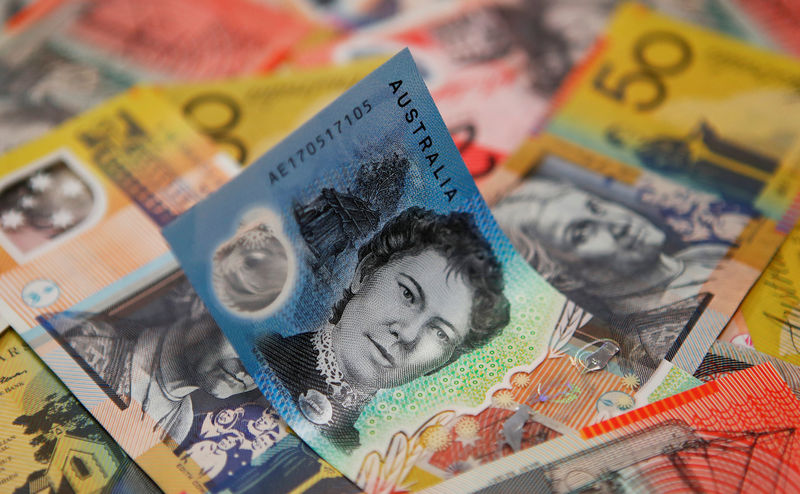(Bloomberg) -- The Australian dollar may give up its recent gains against the yen as President Donald Trump’s virus infection increases the uncertainty from the U.S. presidential election.
The currency pair dropped as much as 1.2% on Friday after Trump said that both he and the First Lady Melania Trump tested positive for the virus. That follows a 3.3% slump in September after posting its longest winning streak in more than a decade.
The risk-sensitive Australian dollar has benefited from nations heading toward an economic recovery after a coronavirus-led downturn but the market is turning cautious and starting to favor the haven value of the yen.
“We see a risk that AUD/JPY is headed lower,” says Jane Foley, head of FX strategy at Rabobank in London. “Elevated political risk in the U.S., concerns that some restrictions related to Covid-19 will be with us for longer and China/U.S. tensions could all mean a move back into safe-haven currencies.”
The Aussie rose for five straight months against the yen in its longest-winning streak since 2009, before bearishly breaching its 50 and 100-day moving averages last month. Its moving average convergence-divergence, a momentum indicator, has fallen below zero and its signal line, in a sign that that the currency pair’s faces further downside.
The Aussie’s weakness can also be attributed to expectations that the Reserve Bank of Australia may further ease its policy this year. While a Bloomberg poll shows that it may leave rates unchanged at Tuesday’s review, markets are pricing a cut in the RBA cash rate to at least 0.10% as soon as its November meeting.
The federal budget announcement, also scheduled on Tuesday, will be in focus as the government is expected to announce tax cuts and infrastructure spending to support an economy facing its first recession in almost 30 years.
Meanwhile, there are signs that money managers are favoring the yen in the lead-up to the U.S. election. Asset managers boosted bullish positions in the Japanese currency to a record high in the week ended Sept. 22, according to data from the Commodity Futures Trading Commission.
Below are the key Asian economic data and events due this week:
- Monday, October 5: Japan services PMI, Singapore retail sales, Thailand CPI
- Tuesday, October 6: RBA rate decision, Australia budget announcement, trade balance, South Korea CPI, Philippines CPI
- Wednesday, October 7: Australia weekly payrolls
- Thursday, October 8: New Zealand business confidence, Japan BoP current account balance, China Caixin services PMI, South Korea BoP current account balance, Thailand consumer confidence
- Friday, October 9: RBA Financial Stability Review and Australia home loans, Japan labor cash earnings and household spending, Philippine trade balance
©2020 Bloomberg L.P.
